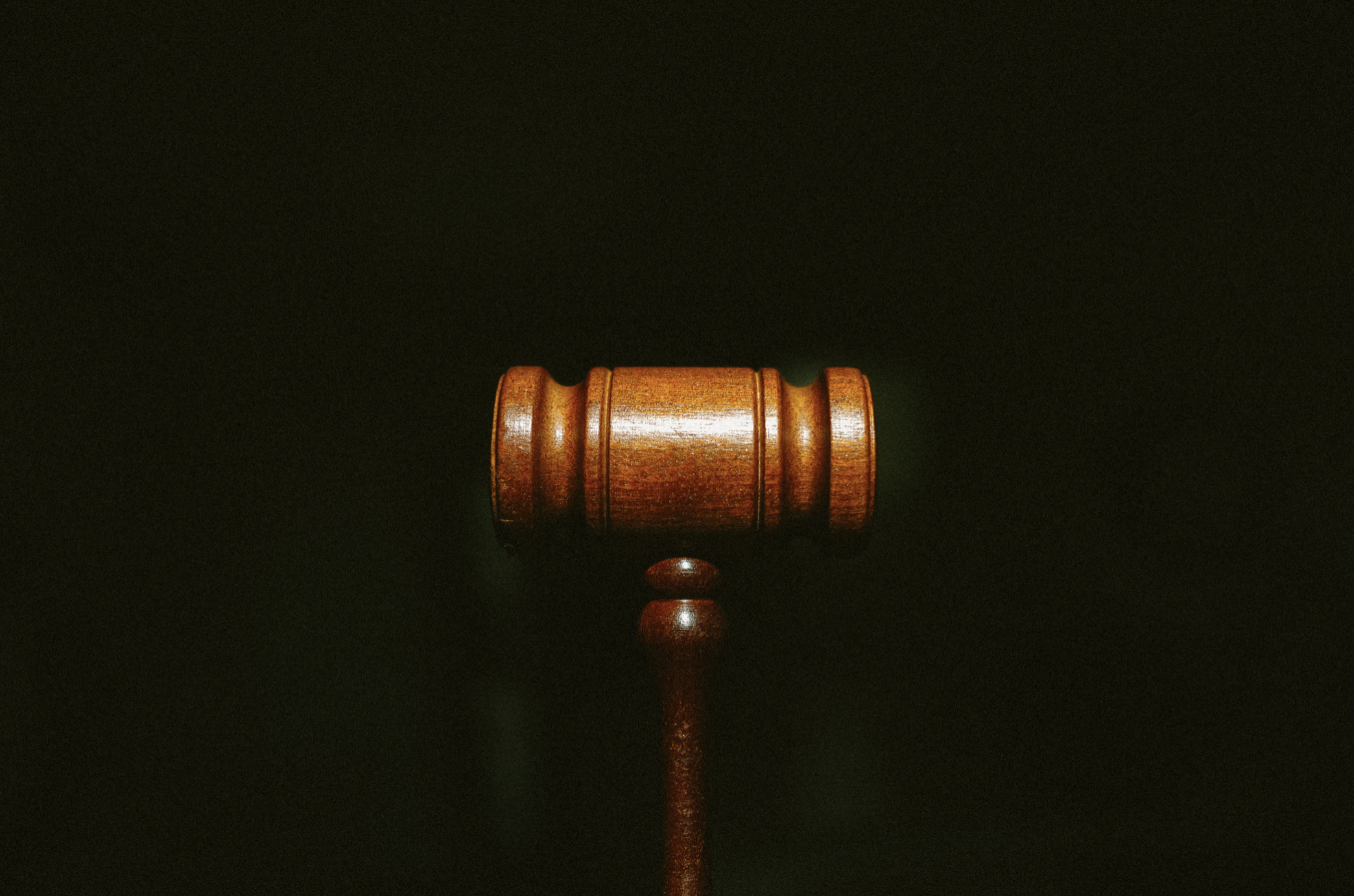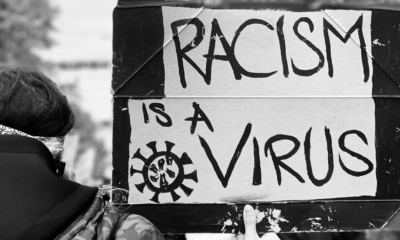Legal
Hong Kong; The View from Within

However, on the weekends the protestors come out and cause havoc on the streets – I am writing this whilst stranded at a relative’s house because it is too dangerous for me to go home.
Protestors have barricaded the streets and are throwing molotovs at police officers – some are even digging up the roads to throw blocks of tarmac at the police.
I can’t go out on the weekends for a drink or enjoy late-night shopping and dining without a care in the world like I used to.
On an emotional level? It’s a lot more complex.
My parents are from HK but I was born and raised in London. I feel fearful for HK’s future, as well as despair at the current state of events. I also feel disappointed at how the Western media seem to be blindly pushing a pro-protestor narrative without acknowledging the grey nature of it all – there is no black and white in this whole situation, and it’s very frustrating to see such a biased viewpoint being reported by outlets I thought I could trust.
I am the last person to say that I am pro-China. Even though I am ethnically Chinese, I call myself a Hong Konger over being Chinese. I don’t identify with China’s values or way of life, I don’t speak Mandarin, and I feel like a stranger when I’m in the mainland. But at this point, I feel like the protests have gotten way out of hand, and I feel incredibly frustrated and angry by it all. I want to try to lay out why.
- The violence. I am now in HK for the next few months and have been able to watch events unfold LIVE without editing for the first time. This has been instrumental in making me realise that in fact, certain groups of protestors have been the aggressors, not the police. I want to believe that these violent thugs are the minority of protestors and not the majority, as I have seen peaceful protestors too (they usually demonstrate during the afternoons). But at night, violent thugs come out in their masses to attack policemen and smash up buildings. How can they claim to love Hong Kong and have the city’s best interests at heart when they are treating it in this way? The economy is suffering, daily life comes to a standstill, ordinary civilians feel scared to leave the house and the amount of criminal damage that has been done would surely warrant a more severe reaction in any other country. In fact, I’m pretty sure if this happened in America, policemen would open live fire without hesitation.
- The use of American/British flags.This angers me beyond words. Quite frankly, it is embarrassing to witness people waving the Union Flag and the old colonial flag in the protests because it shows that we have completely forgotten our history and where we came from. The way in which Britain took Hong Kong was unspeakably unethical and disgusting. Full stop. Under British rule, HK people were treated as second class citizens. It wasn’t until after WW2 that the British realised that their hold on the colony was not completely immune, so they started to free up the market and let ethnic Chinese participate in higher decision making etc. Moreover, under British rule, Hong Kong never had democracy. This is the most democratic version of Hong Kong that has ever existed.The protestors using the British flag and asking Britain to ‘take them back’ are therefore acting in an utterly absurd and degrading manner. It’s like they have Stockholm Syndrome! As for the use of American flags – I don’t have any words. What do the USA have to do with this? To use it as a symbol of democracy and freedom is stupid – they have plenty of their own problems and are more socially backwards than HK in many ways! If you like them so much then join them – then you’ll see what real police brutality is…
- The protestors’ aims. I realise that the protestors are a huge and diverse group who might have different ideas of what they want to gain. I am fully in support of peaceful protestors wanting to push for government reform in light of the Basic Law and preserve HK’s freedoms under the 1 country 2 systems policy. But the more extreme protestors appear to be pushing for complete independence using violent means. They are hurting HK in the long run – China will use these protests as an example of why democracy and a free internet doesn’t work, and they are likely to tighten their grip on HK which will only breed further resentment. Moreover, practically HK can never be independent – our water, food and energy comes from China, and China is such a global superpower by now that no country in its right mind will support HK over China. China has already shown a lot of restraint by not bringing in the PLA despite HK descending into chaos – they could easily flatten the city at any point, so fighting for something completely out of reach in such a violent way will do nothing. Negotiation and compromise with Beijing will result in progress and change, not rioting and destroying your own city.
EDIT: wow, feeling very humbled by all the supportive responses I’ve seen to my post. This was my first ever answer on Quora and I wrote it as a way of laying out my own feelings amidst the chaos.
After reading some comments, I would like to add this.
I honestly don’t have any answers to the situation. The protests are a symptom of a deep-rooted identity crisis, and in some ways, I think that the present turmoil was inevitable for HK. All I know is that the current levels of violence being employed by certain groups of protestors will not solve anything- for starters, I don’t see the government being willing to negotiate with thugs because that will just set a precedent that violence is an effective and rewarding tactic to use.
I am not saying that the police are completely blameless in their excessive use of force. But at this point, can they really retaliate with anything less than force when they themselves are being attacked by angry mobs armed with a deadly arsenal of guerilla weapons? If the protests weren’t violent in the first place, then surely the police would not have to use violence against them? These are just my opinions, and I am of course happy to hear other people’s views.
As for the protestor demands, whilst some extreme groups want complete independence (which is, in my opinion, unviable), the majority seem to agree on 5 points:
1 . Complete withdrawal of the extradition bill (as opposed to mere suspension, even though Carrie Lam described the bill as “dead” which in my view is pretty clear cut)
The complete withdrawal has been confirmed as of 4/9/19 by Carrie Lam in an official statement.
2. Inquest into police violence
I actually feel that this is not an unreasonable demand- the police should be transparent and held accountable. However, it seems only fair that the violent protestors should be held accountable for their criminal actions as well?
3. Government should stop calling the protests “riots”
The peaceful protests should not be termed as riots. However, it is difficult to know where to draw the line. When the protests get violent at night, then I’m sorry- they are RIOTS, end of. Such public disorder and acts of aggression against police authority, with the addition of unrestrained vandalism and destruction of property, is RIOTING. The rioters cannot demand double standards – if they want the police to be held accountable then they need to accept responsibility for their actions too.
4. Amnesty for arrested protestors
Again, see point above: at least for the violent protestors who actively participated in destruction of property and vandalism, these people should not escape the law. There are even reports of such thugs physically attacking policemen with makeshift bayonets! They committed criminal damage and battery.Why they should be granted amnesty is beyond my comprehension and seems extremely hypocritical given their demands for police behaviour to be scrutinised.
5. Universal suffrage.
This is a more complex issue – it is arguable that the Basic Law (HK’s mini constitution) sets this out as an eventual aim for HK (at least until 2047). However, the wording is vague and ambiguous. I do support HK pushing for reform in their government and making the voting process more inclusive, transparent and effective. However, using violence will only act as a setback. as I said before, Beijing will not negotiate with terrorists- this would only set a precedent to other unstable regions (e.g. Xinjiang) that setting fire to barricades, destroying public property and attacking policemen is a good way to get the government to listen!
Right now, we are a prime example to Beijing of why freedom of speech and a free internet is a bad thing. We need to prove them wrong, and we need to show them that we are better than this. We need to gain their trust and show them that we value harmony and stability within our country- because like it or not, Hong Kong is inextricably tied with China as one country. We may not identify with them, we may not speak the same language, and we may think of them as uncouth and rude. But our histories are linked, our people are their people, and our return to China in 1997 was the correction of a historical wrong. It will be difficult, and it will take a long time- but we need to come to terms with this, and learn to embrace our similarities, for we are more similar than different. We need to appreciate what the other can provide us and enlighten us with, and with this understanding and trust, there is hope that China can entrust us with continued freedom and increased democracy.
Again, these are all my personal, late night musings. I am by no means claiming that I know everything or that this is unquestionably correct. I do, however, feel sad that my beloved city has now descended into chaos, and that the current state of things reflects us as a people.
Hong Kong, I’ll always have your back. We can do better. We ARE better than this.
Legal
Is unjust enrichment really concerned with enrichments?

This article argues that the law of unjust enrichment is not actually concerned with the defendant’s enrichment, in the sense of them being ‘better off’. It will cite five examples of law showing that it does not reverse betterment. Instead, the law reverses receipt of money or services. Whether or not the defendant is better off by the receipt is irrelevant. Finally, this argument is not merely semantic. It tells us that FII (UKSC 3) is wrong on principle, precedent and policy.
Convention tells us to apply the Birksian fourfold formula to establish a claim in unjust enrichment. One of the questions we ask is whether the defendant was enriched. In ITC v HMRC [2017] UKSC 29, Lord Reed famously said that these are merely ‘broad headings for ease of exposition’, so it is not to be read like the ‘words of a statute’. We can accept this but still prefer English words that better capture what the law is doing. In English, to be enriched is to be ‘better off’ (Merriam-Webster, Oxford etc). We take a ‘straightforward economic approach’ (Peter v Beblow [1993] 1 SCR 980 (McLachlin J)). However, this article will argue that, as a matter of positive law, the claimant need not show the defendant was better off. The language of ‘better off’ is at once both over- and under-inclusive. It cannot explain the cases. Receipt can. It is therefore better to speak of unjust receipts instead of unjust enrichments.
(i) History.
In the first place, how did ‘enrichment’ take hold as the legal language? There are two possible reasons. Firstly, it may have something to do with what Birks thought the ‘core case’ of unjust ‘enrichment’ was: mistaken payments. ‘Money has the peculiar character of a universal medium of exchange. By its receipt, the recipient is inevitably benefited’ (BP Exploration Co (Libya) Ltd v Hunt (No 2) [1979] 1 WLR 783, 799 (Goff J)). Birks reasoned by analogy from the core case, so it is no surprise that ‘enrichment’ was taken to be the crux of the claim. However, there is no reason why payments must be the central case. Indeed, the ‘better off’ view loses explanatory force with services cases (see below). In any event, one receives a mistaken payment. This is therefore no reason to prefer ‘enrichment’ over ‘receipt’.
Secondly, it has been suggested that there is a ‘peculiar normativity about extant gain’ (Birks, Unjust Enrichment (Oxford 2005), 208). Many of the English unjust factors are wholly claimant sided. This gives rise to the following objection: why should, say, a unilateral mistake in the claimant’s mind be sufficient to generate an obligation of the defendant to pay back? After all, ‘liabilities are not to be forced upon people behind their backs’ (Falcke v Scottish Imperial Insurance Co (1886) 34 Ch 234 (Bowen LJ)). To overcome this, we may say the fact that the defendant is better off provides the requisite normative justification for imposing an obligation on them. Although this may be true, the language of receipt can do the same job. Again, this is no reason to prefer ‘enrichment’.
Whatever the merits of the traditional Birksian view, as a matter of the positive law today, ‘better off’ is both over- and under-inclusive in explaining it. The main section of this article goes on to cite five examples of law and explains why it does not fit with the ‘better off’ view.
(ii) Consequential enrichments.
Firstly, a defendant is better off to the extent of their ‘consequential enrichments’, but the law will not reverse this.
Imagine a locked cabinet with treasures inside but no key. A locksmith is hired to open it. Insofar as the cabinet owner is unjustly ‘enriched’, clearly it is only to the value of the services rendered, not the treasure inside. However, the treasure inside represents the ‘consequential enrichment’ and how much the defendant is better off by the claimant’s services. The law does not reverse this (Yeoman’s Row Management Ltd v Cobbe [2008] 1 WLR 1752, [41] (Lord Scott)).
Similar is Benedetti v Sawiris [2013] UKSC 50 and the market value approach. Benedetti tells us that we reverse the market value of the service (what the defendant received), rather than the ‘end-product or subsequent profit made by the defendant’ ([14] (Lord Clarke)) (how much the defendant was better off). Any quantifications of ‘enrichment’ based on market value therefore go against the better off view. It is noted that the market value approach is uncontroversial and has existed since Weatherby v Banham (1832) 3 C&P 228.
ITC’s ruling on the ‘enrichment’ issue also supports this view, albeit on a more convoluted set of facts. The claimant customers made payment for services and for VAT purposes. For simplification, the claimants paid 100 GBP to the service-provider for the purposes of VAT, but the service-provider only paid 75 GBP in VAT to the tax Commissioners. This is because under VAT law, the service-providers only paid VAT on the difference between what they earned as payment and what they spent for the purposes of providing the service (‘output tax’ minus ‘input tax’). If the latter exceeded the former, the service-providers were entitled to a credit, which could be paid by the Commissioners or carried forward to later accounting periods.
One issue was whether the Commissioners were ‘enriched’ to the extent of 100 GBP or 75 GBP. The argument for the latter is that the Commissioners only received 75 GBP. The argument for the former is that even though the Commissioners did not receive the 25 GBP, they indirectly obtained its benefit: the 25 GBP benefitted the Commissioners by setting against the input tax which the Commissioners would otherwise have been obliged to pay or credit to the service-providers. The UKSC held in favour of the former. The Commissioners only received 75 GBP so that is what they are (potentially) liable to restitute. Whether the Commissioners were benefitted by the 25 GBP is irrelevant.
An authority standing in the way is BP Exploration Co (Ltd) v Hunt (No. 2) [1979] 1 WLR 783, because Goff J says that ‘the benefit should in an appropriate case be identified as the end product of the services’. The better view is to limit BP to the unusual language of the LR(FC)A 1943 as Lord Goff himself did. Moreover, and in any case, the relevance of unjust ‘enrichment’ to the Act was doubted in the Court of Appeal ([1981] 1 WLR 232, 243 (Lawton LJ)).
Several attempts can be made to save the language of enrichment, by arguing that a defendant is not actually better off by their consequential enrichments, but they all fail. The first is to say that enrichments are measured at the date of receipt (Goff & Jones – The Law of Unjust Enrichment (2016, 9th ed)) so it is no surprise that the law discounts consequential enrichments. There are two answers to this. One, in the law of tort the cause of action also arises when the wrong occurs. However, we do not quantify consequential loss at the moment, but at the date of judgment instead (Stevens). Two, this artificiality demonstrates what the law is truly concerned with – receipts.
The second is to adopt ITC’s tighter view of ‘at the expense of’. We can then explain why the law does not reverse consequential enrichments: they do not come at the expense of the claimant. This is true, but the argument being made here is that consequential enrichments are not relevant ‘enrichments’ at all.
The third is to say consequential enrichments are not reversed because they are protected by the change of position defence. Again this is true and again, it is not to the point. Change of position is a defence, not a denial. It is not part of the cause of action of unjust ‘enrichment’. It is not simply a proxy for disenrichment because independent requirements like good faith have to be satisfied.
Therefore, a defendant is better off to the extent of their consequential enrichment. The arguments to the contrary all fail. The fact that the law does not reverse this shows that it is not really concerned with ‘enrichment’ at all. By contrast, the language of receipt conveys the sense of immediacy and excludes consequential enrichments as a matter of English. The treasure-owner receives the locksmith’s services from the locksmith, but not the treasure inside. Another advantage of receipt, as has been demonstrated, is that it harmonises ‘enrichment’ with ‘at the expense of’. There will be less artificiality by constantly resorting to the latter to circumscribe the former. Both stages of the fourfold formula will independently satisfy the narrow bilaterality required by corrective justice (Weinrib).
(iii) Pure services cases.
Secondly, a defendant is not better off when they receive pure services, but the law will still reverse this.
Pure services cases (eg a massage) are those where, by definition, the defendant is not financially better off. The law still reverses them because the defendant has received it. Beatson argued otherwise; the law should only reverse services that has led to a financially valuable benefit. However, common sense tells us that Beatson must be wrong since it will mean that most of the services we pay money for are excluded from unjust ‘enrichment’ (Birks, ‘In Defence of Free Acceptance’ in Essays on the Law of Restitution (Burrows (ed), 1991)). The law is therefore not concerned with the defendant’s betterment. Indeed, a defendant can be worse off but the law will still, in principle, demand them to pay restitution. For example, a defendant who has requested the claimant to scratch his car; there is no distinction with repairing the defendant’s car. In both cases the defendant has received the service unjustly at the claimant’s expense, so the claimant obtains restitution of the market value of the services. Therefore, ‘better off’ is under-inclusive.
Planché v Colburn (1831) 5 Car. And P 58 is a problematic case. Claimant author contracts with the defendant to write a book. The author started doing preliminary research when the contract was abandoned. He nevertheless successfully sued for a reasonable sum for his research even when the defendant was not enriched by it. We cannot say that the defendant got what they bargained for, and was better off to that extent, because the defendant bargained for a book, not the preliminary research. Nor can we say that the claimant saved the defendant a necessary expense, and was better off to that extent, because the defendant would not have hired someone else to do the research. We can, however, say that the claimant performed for the defendant so the law reverses this performance. This is Stevens’ language of ‘performance’ which is in competition with the language of ‘enrichment’ and ‘receipt’. Although it can explain Planché, we should nevertheless reject it for reasons explored below. Therefore, we should conclude that Planché is an anomaly, as most lawyers have.
Again, arguably there is a way to reconcile the law reversing pure services with the better off view. Where a defendant has freely accepted services, the law may choose to presume that they are better off. A claimant will inevitably have to demonstrate free acceptance in pure services cases, because a defendant will invariably raise a plea of subjective devaluation. However, this is not the way the law has approached free acceptance. Free acceptance does not demonstrate an ‘incontrovertible benefit’ like saving a necessary expenditure does. Rather, it is generally seen as a separate method of overcoming subjective devaluation based on the defendant’s autonomy (Benedetti, [18] (Lord Clarke)).
Therefore, the fact that the law reverses pure services shows that it is not actually concerned with whether the defendant was better off. It is instead concerned with what the defendant received.
(iv) Payments made to trustees and agents.
Trustees are not benefitted by payments. By definition the beneficial interest lies with the beneficiary. Nevertheless, the law reverses payments made to them: Skandinaviska Enskilda Banken AB (Publ) v Conway [2019] UKPC 36, [2020] AC 1111. The UKPC justified this in two ways. Firstly, they said that a trustee is benefitted because ‘the common law ignores the equitable interest of the beneficiaries’ ([89]). It is difficult to take this view seriously after the Judicature Acts of 1873 and 1875. Secondly, they said that there are ‘practical reasons’ why the trustee should be regarded as enriched so the claim is made against them rather than the beneficiaries. It is ‘inconvenient and expensive’ for a claimant to identify beneficiaries and sue them. This is well but policy should not trump principle. If the law really reversed enrichments, it should not reverse payments made to trustees because they are not better off. Given that it does, better language must be sought. A trustee receives payments so the law reverses this.
By contrast, the law does not reverse payments made to agents: Portman Building Society v Hamlyn Taylor Neck [1998] 4 All ER 202 (Millett LJ). Millett LJ gives us two reasons why: firstly, the agent did not receive the money for its own use and benefit and secondly, ‘in contemplation of law the payment is made to the principal and not to his agent’. In light of Conway, the first reason cannot be correct because neither do trustees. The second and better justification can in turn explain why even though an agent seemingly receives the payments, the law does not reverse it as against them. The answer is that the agent did not actually receive the payment ‘in contemplation of law’.
(v) Use value of money.
Money acquires additional value over time because loans are always made with interest. When a defendant unjustly obtains money from the claimant, will the law demand the defendant to restitute the principal sum and the use (time) value of that money? If yes, that points to the better off view. But the answer today is no.
Previously in Sempra Metals v IRC [2007] UKHL 34, Lord Nicholls thought there were two distinct benefits being transferred when money is paid: ‘(1) the amounts of tax paid to the Inland Revenue and, consequentially, (2) the opportunity for the Inland Revenue, or the Government of which the Inland Revenue is a department, to use this money for the period of prematurity’ ([102]). He accepted in principle that the use value could be reversed, subject to subjective devaluation. If we conceptualise payments in this way, then it will be no surprise that the latter ‘consequential’ benefit is not a ‘direct transfer of value’ and does not come at the expense of the claimant: Prudential Assurance v HMRC [2018] UKSC 39. Therefore, following Prudential, whether use value is an ‘enrichment’ is today moot because it will not be reversed in any event. The example of use value of money supports neither enrichment nor receipt.
However, there is another view, which is best demonstrated by asking: what is the market value of money? The sum itself is not the answer, because one can only obtain loans (‘buying money’) at an interest. In other words, if we reason from services cases (Benedetti) to money cases, we will see that Lord Nicholls’ starting point is wrong. There is only one sum being transferred, and that is the principal sum. We quantify it by asking what the market value is. The answer is the principal sum plus the use value of the money. On this view, there is no problem of awarding use value because it does come ‘at the expense of’ the claimant. Again, the fact that the market value approach is being used points towards receipt, not enrichment.
(vi) Consequential disenrichments and FII (UKSC 3) [2021] UKSC 31.
FII (UKSC 3) is antithetical to the argument. The issue in FII (UKSC 3) arises over ‘consequential disenrichments’. It is demonstrated by this example. A defendant has assets amounting to $10 in value. The defendant receives $30 annually in government income support. One condition of the annual income support is that the defendant’s assets are valued at less than $15. The defendant subsequently receives a mistaken payment of £6. This mistaken payment has the effect of removing the $30 annual benefit, because now the defendant’s assets are $16 in value. Edelman & Bant, Unjust Enrichment, 2nd ed (2016) conclude that ‘[t]here is no enrichment of the defendant from the mistaken payment’. Indeed, there is a net ‘disenrichment’ of $30 – $6 = $24.
In FII (UKSC 3), the Revenue argued that because of the mistaken payment of ACT (their ‘enrichment’), they incurred an obligation to allow shareholder tax credits under s 231 ICTA (their ‘disenrichment’). In principle, the UKSC took the view that enrichment means ‘benefitted’ ([169]), so merely because ‘the claimant transferred £X to the defendant [does not mean] the defendant’s enrichment is £X. The court may, as the Revenue argues, have to have regard to liabilities which the defendant incurs as a consequence of the receipt of the money’ ([170]). In other words, they permitted consequential disenrichments to be accounted for. On the facts however, the Revenue failed to satisfy the UKSC that there was a requisite link between the enrichment and disenrichment. The receipt of ACT and granting of shareholder tax credits were ‘independent statutory provisions, neither of which was made conditional upon the other’ ([190]). The UKSC also used the language of ‘not a precondition’, ‘not a consequence’ and ‘has no bearing’ ([190]) to describe the same point.
If we permit consequential disenrichments to be accounted for, then it is only logical that some link must be shown. Likewise, in the law of wrongs, is how we assess whether ‘compensating advantages’ that occur after a wrong can be accounted for to reduce the relevant loss. ‘The essential question is whether there is a sufficiently close link between the two’ (Fulton Shipping Inc v Globalia Business Travel SAU [2017] UKSC 43, [2017] 1 WLR 2581 ([30])). But in the first place consequential disenrichments should not be relevant for three reasons.
Firstly, as a matter of principle, it leads to the view that Benedetti, and indeed ITC (on enrichment), is wrong. The UKSC cites Benedetti with approval ([170]) but do not realise that they are implicitly contradicting it. The disagreement is this. There is no principled distinction between consequential enrichments and disenrichments. If we recognise the latter, we move towards the ‘better off’ view because we are assessing the defendant’s net betterment at the date of judgment. Benefits that accrue after the ‘immediate enrichment’ must then be recognised as well. The effect: the locksmith can legitimately demand for restitution of the treasure inside. The market value rule in Benedetti becomes obsolete because we look at the defendant’s betterment, not the value of the claimant’s services. As the example of scratching the car above demonstrates, these measures can differ. The UKSC does not seem to realise the implications of their view. This shows us that this is not merely a semantic debate. The language of ‘enrichment’ confuses and must be rejected.
Secondly, as a matter of precedent, there is no reason FII (UKSC 3) needed to take this view. Admittedly there is Jeremy Stone Consultants Ltd v National Westminster Bank plc [2013] EWHC 208 (Ch). This was the typical bank transfer scenario: the claimant mistakenly pays money to the defendant bank to transfer to a third party. The claimant sues not the third party but the defendant bank. Was the defendant enriched? Sales J said no. The bank received the money but ‘the increase in its assets was matched by an immediate balancing liability, in the form of the debt which [the bank] owed [the third party] reflected in the increase in [the third party’s] bank balance as a result of the payments’. Alternatively, the bank had changed its position. On the other side however stands Royal Bank of Scotland v Watt [1991] SC 48 which represents the same fact pattern: payment was made to the defendant but in reality the defendant is only better off by a smaller amount. Here, Lord Murray says that ‘The emphasis is not upon the extent to which the party receiving the payment has been enriched, but upon whether that person has any good and equitable reason to refrain from repaying the money’ (p 57). This gets to the heart of it. Yes, intuitively it seems unfair for the bank in Jeremy Stone to repay the money. But adequate protection is already provided by the change of position defence. There is no need to short circuit this by recognising disenrichments.
Finally, as a matter of policy, FII (UKSC 3)’s view of the law will lead to great uncertainty. What exactly is the link required? To be sure, another UKSC decision should be expected to define the limits of FII (UKSC 3). Either way, Cobbe, Benedetti and ITC (on enrichment) are directly at odds with FII (UKSC 3), so there is ample room to litigate and good arguments either way.
Therefore, although FII (UKSC 3) is authority against this article’s argument, it is wrong on principle, precedent and policy.
(vii) Receipt vs performance.
As mentioned earlier, this article considers three contenders to the throne: ‘enrichment’, ‘receipt’ and ‘performance’. The language of ‘receipt’ captures similar concerns as Stevens’ ‘performance’. In essence, Stevens’ thesis is firstly, to question the unity of unjust ‘enrichment’ and secondly, to organise what is left according to ‘unjustified performance’. With respect to the performance limb of his argument, Stevens says that there must be a (1) doing (2) for the defendant that was (3) accepted. Then we can (4) reverse the performance if it was (5) unjustified. Like this article, Stevens argues that the law is not concerned with enrichments in the sense of being ‘better off’. This view has force but the language he adopts in its place is awkward. It is unnatural to say, in Birks’ central case, that a claimant ‘performs’ for a defendant by mistakenly paying them. Conversely, as demonstrated, ‘enrichment’ fails in particular with services. Thus, ‘receipt’ embraces payment and services cases equally.
Admittedly, the language of ‘receipt’ will exclude cases of recoupment, contribution and subrogation from unjust ‘enrichment’ because they involve three-party situations. This, however, is an advantage. I will explore why in another article.
Therefore, receipt, not performance, should replace the language of enrichment.
(viii) Conclusion.
To conclude, this article has argued that the law of unjust enrichment does not actually reverse the defendant’s enrichment, in the sense of being ‘better off’. A defendant is better off to the extent of their ‘consequential enrichments’, but the law will not reverse this. A defendant is not better off when they receive pure services, but the law will still reverse this. A defendant is also not better off when they receive money as a trustee, but the law will still reverse payments as against them. The use value of money as currently conceptualised has no bearing on the argument. FII (UKSC 3) and its recognition of consequential disenrichment cannot be justified on principle, precedent and policy. The language of receipt explains the cases better. Therefore, we should abandon unjust enrichments in favour of unjust receipts.
Legal
Does English Legal History Change?

I hope I may be allowed to answer this question by way of some personal reminiscences. I taught legal history (amongst other things) for forty years at Cambridge, and it is getting on for sixty years since I attended my first lectures on the subject in London. (That, incidentally, is about ten percent of the time back to the death of Henry V in 1422.) The lectures were given by Professor S. F. C. Milsom (1923-2016), and they turned out to alter the course of my professional life; but that is another story. Legal history syllabuses were focused on land law, contract, and trespass. Constitutional history of a kind was taught in History faculties, still using the textbook of F. W. Maitland (1850-1906), but it had dropped out of sight in Law faculties. Only social historians were interested in crime. Since the modern subjects I taught were still heavily steeped in Victorian case-law, and since eighteenth-century law was a dark hole, legal history seemed to most of us to end in 1689, if not in 1649. In practice, most of it was medieval. The Selden Society, founded in 1887, had been publishing annual editions of medieval law reports and other texts, but few scholars had looked at later manuscript law reports or plea rolls (which contain the official records of cases). Sir William Holdsworth’s monumental History of English Law (1903-66) – new volumes of which went on appearing for years after his death in 1944 – hardly ever mentioned a manuscript source.
But this was beginning to change. Dr Albert Kiralfy’s The Action on the Case (1951) showed how basic questions could be answered by delving into manuscript reports and records, and Professor Milsom’s own work was deeply rooted in the plea rolls. Professor S. E. Thorne (1907-94) of Harvard, before switching to Bracton, had begun to explore the huge store of unpublished lectures and moots from the Inns of Court. And Mr A. W. B. Simpson (1931-2011), then at Oxford, made some discoveries in Tudor manuscripts which greatly excited me. His modest note on the reports of Sir John Spelman (d. 1546) in the Law Quarterly Review for 1957 inspired me to obtain a British Museum reader’s ticket while I was still an undergraduate, so that I could look through the manuscript (which I was later to edit for the Selden Society). It was the allure of making discoveries in these largely untapped sources which led me away from a projected career at the Bar towards a life in legal history. Research was carried out in the Public Record Office, then in Chancery Lane, and in libraries on both sides of the Atlantic, pencil in hand, converting Latin court-hand or law French hieroglyphics into a scribble of my own. (Photography was expensive, and reserved for material needing extensive study.) There were, and are, no indexes to the plea rolls or to the manuscript law reports. There were not even adequate catalogues of the latter; a legal historian had to compile his own. Serendipity ruled.
Since those days there have been three major changes in English legal history. Most obviously, there has been the impact of the new technology. I obtained my first word-processor in 1987, and could hardly believe how much easier it became to rearrange thoughts, let alone to prepare editions with collated texts: it seemed amazing then that a machine could even renumber footnotes automatically. Then, more importantly, came digital photography and the internet. Photographs of most books printed before 1800 can now be found online. (Like other legal historians, I had found it necessary to buy shelves of black-letter books. Wildy’s charged £3 a volume for all pre-1700 law reports, and £1 a volume thereafter. Oddly, their value has increased as their usefulness has declined.) Through the industry of Professor R. B. Palmer, almost all the plea rolls from the twelfth century to the reign of James I have now been photographed and made freely available on the internet. Digitisation of law reports is taking longer, though the Harvard Law School has made a good start. We can also make our own photographs. Record offices were the first to allow this, to gratify the genealogical lobby rather than the scholar, but eventually libraries followed suit, and by about 2015 almost all libraries – even the moribund British Library – allowed readers to photograph manuscripts themselves. The scholar can therefore build up a useful store of images to be transcribed or studied at leisure. Moreover, the iPhone can read in dim lighting what aged readers can no longer manage unaided.
The second change has been in the periods of study. Partly as a result of the decline in the study of Latin (and even French) in schools, students are deterred by sources written in ‘dead’ languages. Since Law French was used for almost all law reports until the mid-seventeenth century, and Latin for records until 1731, there has been a surge of interest in the eighteenth and nineteenth centuries – which are, of course, just as interesting in their own way as the thirteenth century; and (well into a new century) they are beginning to seem longer ago.
The third development has been in the fields of research, partly as a result of the second change. Although controversy still rages over traditional topics such as medieval land law, most younger legal historians – at any rate in Law faculties – are not medievalists. There is, however, a widespread interest these days in later subjects, such as equity and commercial law. And there is still unexplored territory in earlier periods. In my own case, a stream of requests to give lectures on Magna Carta in 2015 increased my interest in the history of public law. I had written on it before, but on delving through the manuscripts I found there were new stories to be written. I hope that in the next generation the history of public law will become as mainstream as the history of land law. Far from standing still, therefore, research in legal history is continuing to find much hidden treasure to reveal.
Legal
Technology in the Law

Law graduates of the early 2020s are joining a legal world that is in the early stages of technological transformation.
To put this transformation in context, the first 60 years of legal technology were devoted to automating and streamlining the past working practices of law firms and courts. Technology was used to make the existing legal system more efficient. In contrast, the technologies being contemplated and designed for the coming decade are disruptive – they will irreversibly change the business of law and the administration of justice. Perhaps the two most important developments will be the introduction of online courts and the wider use of artificial intelligence.
Despite the remarkable advances of the past year, we are still in the foothills in our exploration of online courts. It is true that great numbers of hearings have been held remotely in many jurisdictions during the covid period – the website, Remote Courts Worldwide (www.remotecourts.org), records the activities of around 60 jurisdictions. In the main, however, what we saw during 2020 was not a transformation in court service but the use of video hearings as a substitute for physical hearings. In my view, dropping hearings into Zoom or the like is not of itself a revolution. It is a new way of accessing the old system. And that old system has significant problems – it is too costly, time-consuming and combative, and it is intelligible only to lawyers. And these are problems in justice systems that we regard as ‘advanced’. The worldwide picture is lamentable. According to the OECD, only 46% of people on our planet live under the protection of the law. The widespread deployment of video hearings is unlikely to increase that figure greatly. We need new ways to help people understand and enforce their entitlements.
My answer to this global access to justice problem, laid out in my book, Online Courts and the Future of Justice (OUP, 2019), is the introduction of online courts, which I define in a specific way. Online courts, on my model, have two components – online judging and extended court facilities.
In the first generation of online courts, online judging involves fully qualified human judges handling cases not in hearings, physical or by video; nor by hearing oral evidence. Instead, parties submit their evidence and arguments to the judge electronically; there follows some debate and discussion, again online, not unlike an exchange of emails; and the judge will deliver a binding decision in the same form. In this way, the court proceedings become asynchronous rather than synchronous (the judge and parties do not need to be available at the same time to participate). This is clearly not appropriate for all cases but the hypothesis is that it works well for most of the low value, high volume cases that often are the bottleneck of our court systems around the world. Online judging is generally less costly and more convenient than conventional court service – parties, for example, do not need to take time off work to pursue or defend claims.
The second component is the extended court facilities. The idea here is to empower non-lawyers to navigate the court system without the need for lawyers. The main driver is not any desire to eliminate lawyers but, rather, to make the law accessible to the many who cannot afford legal advisers. The facilities I have in mind include those that can help parties to understand their legal positions and the options available to them, tools to help them organise their evidence and structure their arguments, and online techniques that support non-judicial settlement, such as negotiation and mediation, not as a private sector alternative to the courts but as an extension to the services currently offered by the state.
The online court is not a work of fiction. Look at the Civil Resolution Tribunal in British Columbia, Canada. It is the best practical example of these techniques in action, and enjoys very high levels of user satisfaction – https://civilresolutionbc.ca/.
As for artificial intelligence, although this will play a role in online courts of the future, this set of technologies may have greater impact in the 2020s on the work of law firms. The technological details of AI are not so important in grasping what lies ahead. The big trend to notice here is that our machines are becoming increasingly capable, often taking on tasks and activities that were thought not long ago to be the exclusive province of human beings, including lawyers. While these increasingly capable systems are steadily coming into law firms, the change will not be as swift as some commentators suppose.
I wrote my doctorate at Oxford on AI and law in the mid-80s and the subject has been a lifelong interest. And so I am able to say with some confidence that most of the short-term claims currently being made about AI in law hugely overstate its likely impact. However, and crucially, most of the long-term claims hugely understateits impact. Will AI transform law firms over the next few years? Absolutely not. By 2030? Very probably. Already we are seeing AI systems being used for document review in litigation, in due diligence exercises on large transactions, for the drafting of documents, and for the prediction of the outcomes of courts. Incrementally over time, rather than in one big bang, AI systems will steadily encroach on the work of lawyers.
A common response to this claim is that these systems will never be creative or empathetic, characteristics necessary for most successful lawyers. To argue this way, however, is to commit what I call the ‘AI Fallacy’ – the mistaken assumption that AI systems will outperform human lawyers by copying how we work. This is too anthropocentric a view. Instead, these systems will deliver the outcomes that clients want by using their own distinctive capabilities. A medical analogy might help. Patients do not actually want doctors. They want health. Health is the outcome they seek. Likewise, clients do not want creative, empathetic lawyers. Indeed, they do not want lawyers at all. They want the outcomes that lawyers deliver (for example a dispute avoided rather than a dispute resolved) and if AI systems can deliver these outcomes more quickly, conveniently and at lower cost, the market will shift to the AI-based alternative.
Where do these major changes to the legal world leave law graduates, who are planning their careers? I have written about this at length in my book, Tomorrow’s Lawyers (2nd ed., OUP, 2017). One option is to disregard the new technologies and hope there is enough traditional legal work to do. Over time, this will be an increasingly risky strategy and unsustainable, I suspect, in the 2030s. In any event, I look at this era differently. Young and aspiring lawyers of today have an opportunity that arises once every few generations – not simply to join a profession and embrace its longstanding methods, but to change it. The systems I envisage will help many more people around the world to understand and enforce their legal entitlements. They will integrate the law more fully into business life. They will elevate the law, making it much more affordable. And so another option is to dedicate your legal career, at least in part, to building the systems that will replace our outmoded and inaccessible practices.
Professor Richard Susskind OBE is Technology Adviser to the Lord Chief Justice of England and Wales and the author of 10 books.
-

 Legal2 years ago
Legal2 years agoHow we can defend and protect rights in the time of Coronavirus (COVID-19)
-

 Legal2 years ago
Legal2 years agoLook at Afghanistan; why human rights are inextricably linked with the rule of law
-

 Legal3 years ago
Legal3 years agoThe right to protest in a Covid-19 era
-

 Legal3 years ago
Legal3 years agoA Public Health Approach to Tackling Racism
-

 Legal3 years ago
Legal3 years agoA Runaway Decision? Discussing and Defending R (Plan B Earth) v Secretary of State for Transport
-

 Legal3 years ago
Legal3 years agoTrump: the most prolific execution President in over 130 years
-

 Legal7 months ago
Legal7 months agoIs unjust enrichment really concerned with enrichments?
-

 Economic3 years ago
Economic3 years agoWhat is the Rule of Law and What Difference Does it Make?













